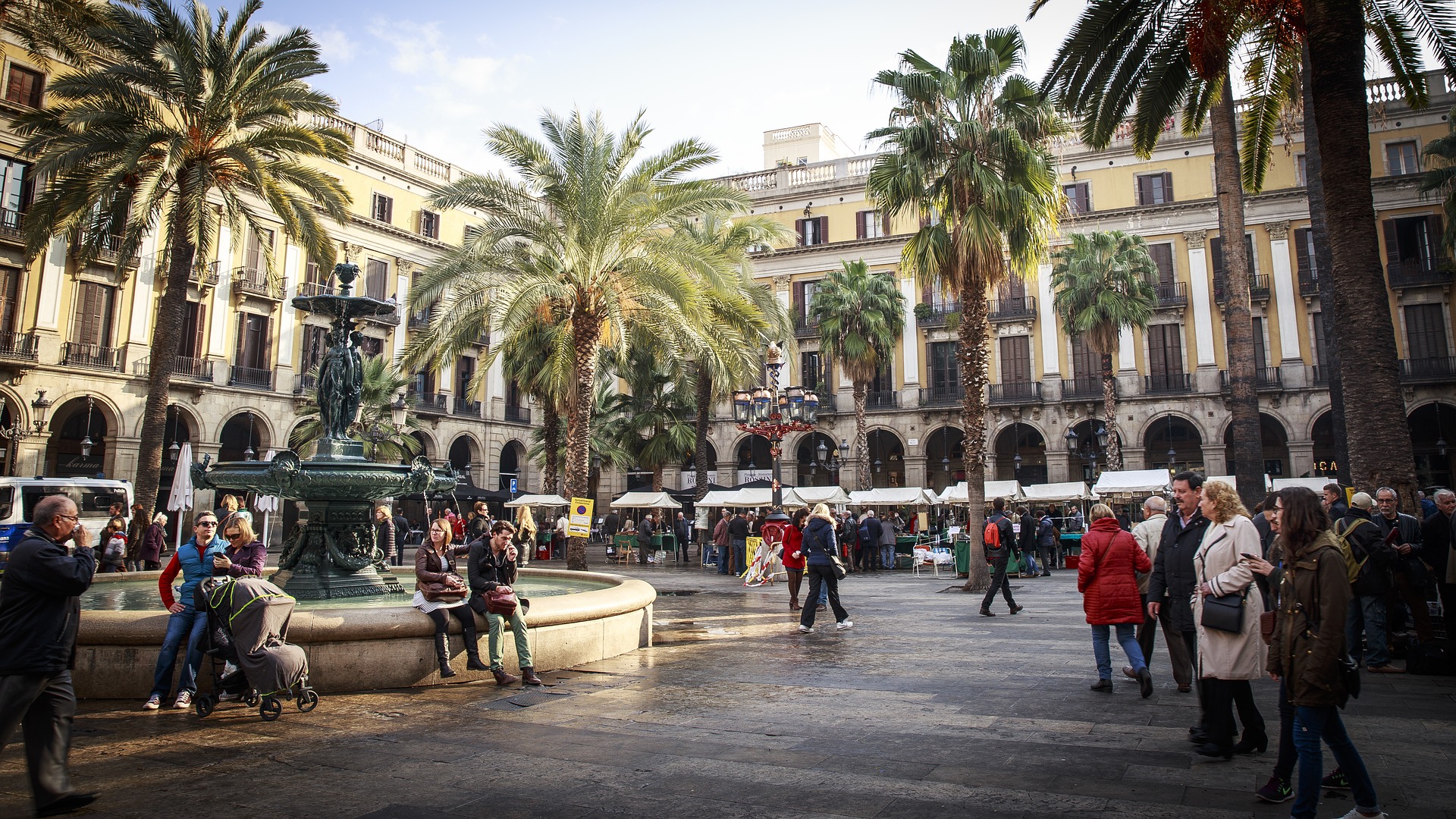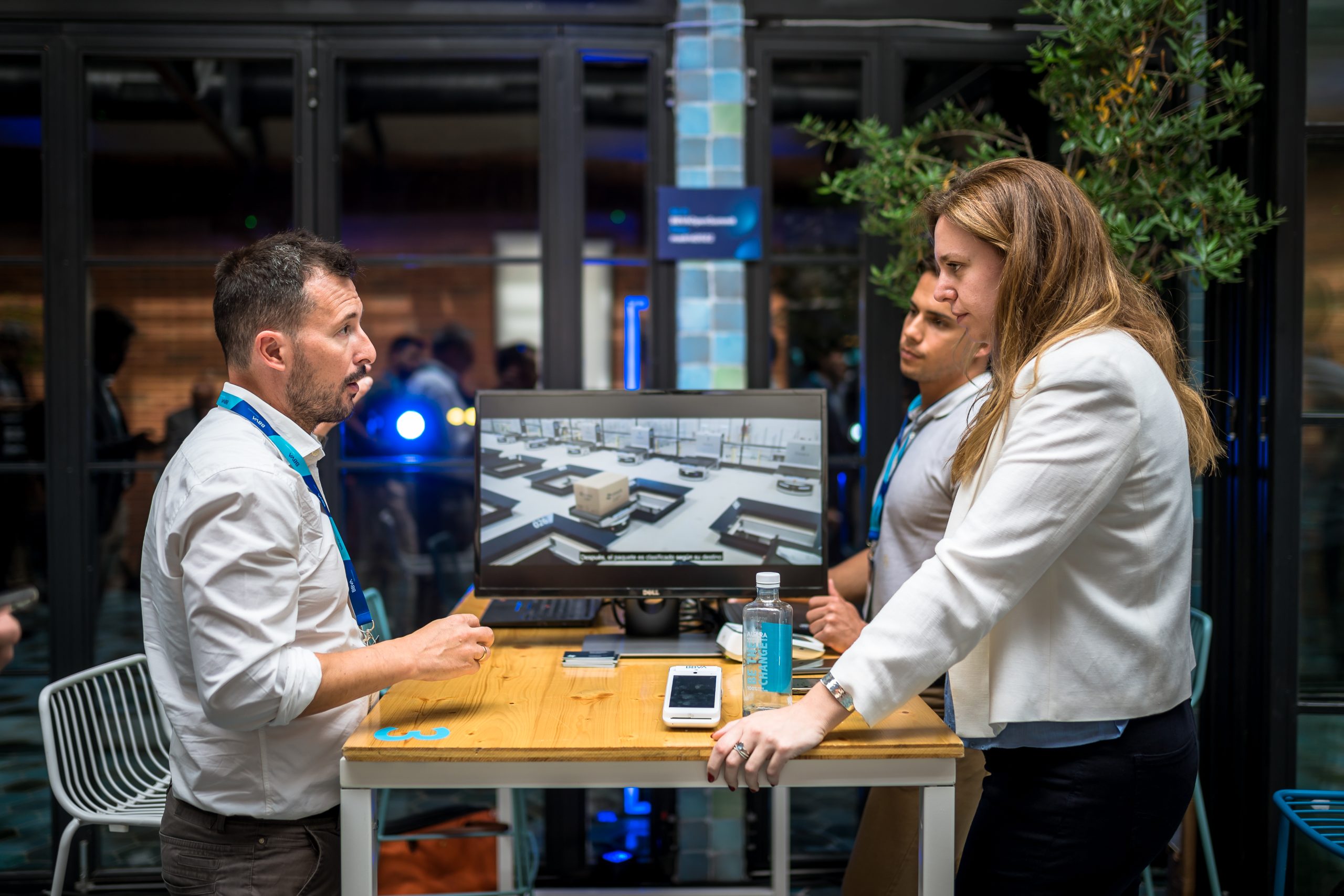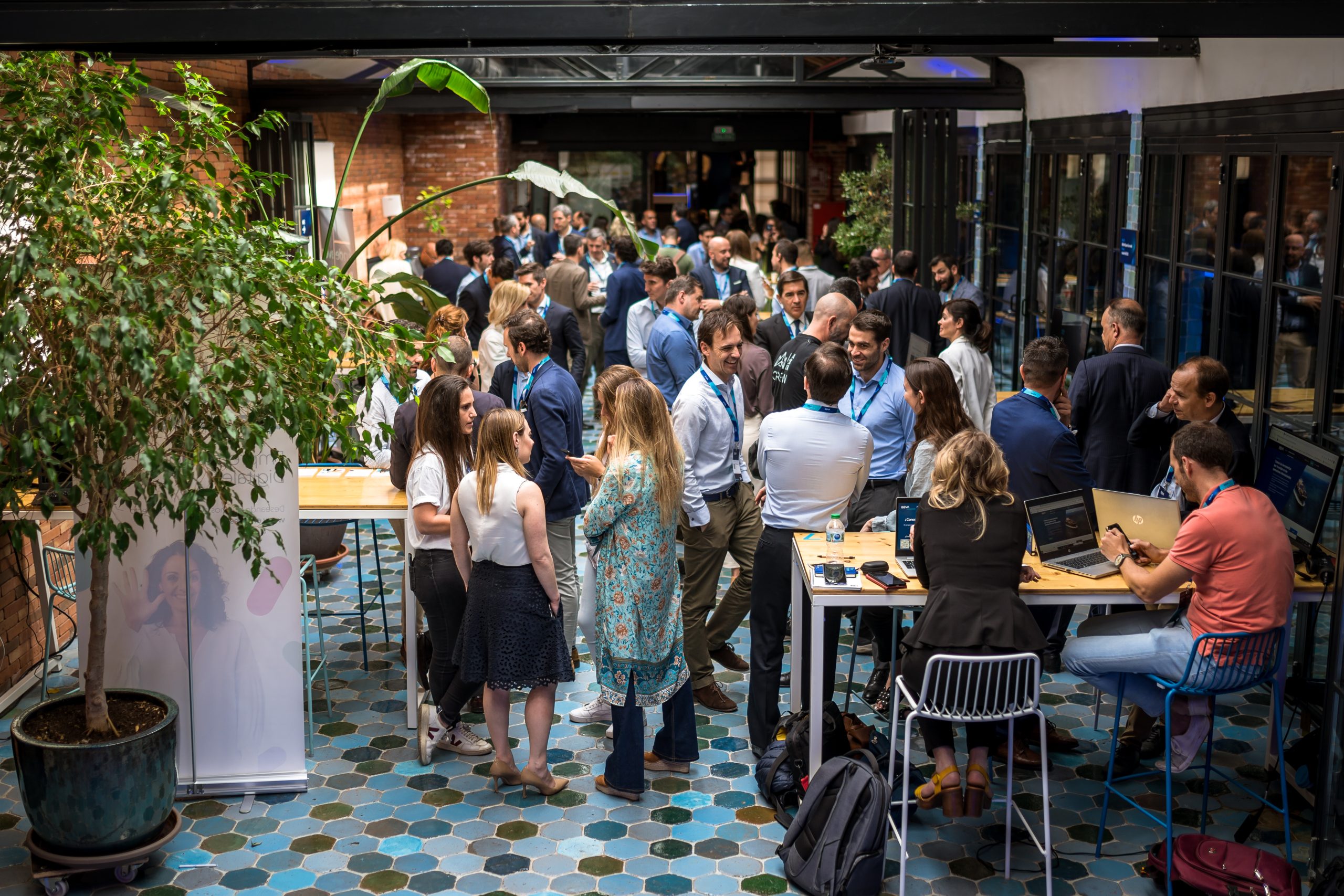Barcelona, on the podium of European entrepreneurial cities
The Catalan capital is home to numerous multinationals, over 1700 startups, prestigious universities, research centres and international fairs, placing it among the top 3 European hubs and making it the ideal place to be an entrepreneur.
Have you ever wondered how many cities there are in the world? It’s around half a million. Of all of these, Barcelona ranks eighth in the world as the best city to live, work and carry out research, according to one of the reference classifications ‘The World’s Best Cities 2021’, drawn up by Resonance Consultancy.
The Mediterranean metropolis is not only attractive to talent for its climate, gastronomy and way of life, but has been preparing to be a technological hub since the 1992 Olympic Games. As a matter of fact, it is on the podium of the best cities for startups in Europe: Barcelona shares the bronze medal for European hubs with Amsterdam. In second place is London and, at the top of the list, Berlin, according to the Startup Heatmap Europe report.
Its powerful research fabric and mature entrepreneurial ecosystem, as well as strong public-private collaboration, have made it a city conducive to setting up a company or holding events as large as the Mobile World Congress. In pre-Covid times, this trade fair attracted over 107,000 visitors, generated 13,900 temporary jobs and had an economic impact of €473 million.

An Olympic city open to Europe
Barcelona went from being an industrial heartland to a city full of services, cosmopolitan and innovative. More recently it has consolidated itself as a digital and technological hub. Extremely important in achieving this was Tech Barcelona, a not-for-profit association that is the backbone of the city’s technological ecosystem. It was set up in 2013, at a time when there were beginning to be success stories, but when the notion of ecosystem did not yet exist. A group of Internet entrepreneurs decided to get together to support other entrepreneurs and strengthen the city’s technology brand.
The purpose of Tech Barcelona, formerly Barcelona Tech City, is to boost the ecosystem’s growth through talent, entrepreneurship, companies and investment, and to consolidate Barcelona as an international hub. To do this, Tech Barcelona is an umbrella entity that connects all the players and aligns interests that otherwise might not dovetail. “When private entrepreneurs start to get organised it’s a sign of consolidation”, says the company’s CEO, Miquel Martí.
This collaboration between agents and investment in technology and innovation has a direct impact on the social well-being of the city, as well as helping to achieve the Sustainable Development Goals, especially those related to education and the promotion of careers in STEM (science, technology, engineering and mathematics), the digital divide and gender equality.
Meanwhile, if a company is thinking of operating on a global scale, timings can pose a problem. “In terms of location, Barcelona is in a very good time zone and allows you to work seamlessly with other continents, so it’s a great place to have a company with a global vision,” explains the CEO.
Technology transfer and research
In recent years many open innovation initiatives have sprung up in the city, including incubators and accelerators, which have given an impetus to the productive fabric. This is the case with The Collider, a Barcelona-based venture builder backed by Mobile World Capital Barcelona and dedicated to technology transfer, the aim of which is to get state university projects out of the laboratory and turn them into practical solutions. “Sometimes research uses a language that the market does not understand, and if this knowledge does not find an application in a sector, it gets lost,” explains its Director Óscar Sala.

As he points out, Barcelona is a key city for entrepreneurial activity, home to more than 1700 startups, a place that above all has a great capacity to generate digital talent due to the natural collaboration between the different agents. Sala highlights that what needs attention is improving technological transfer, transforming the scientific excellence of the laboratory into technological based sector solutions, thereby improving the competitiveness of the industry and creating quality jobs.
“This is certainly one of the differentiating factors of world-leading economies, such as China, the United States, Japan and Israel, which use their scientific capacity to improve the competitiveness of their industry through constant communication between science and business,” he explains. In addition, he notes that European recovery funds offer “a great opportunity” to enhance applied science and transform the Spanish economy.
Barcelona has several world-renowned business schools and universities, technological institutes and science parks, which facilitate joint research. It also has vertical innovation hubs, mature investor networks and public actors that make it possible to obtain the necessary funding to develop solutions for the market. “It’s an ecosystem that makes it easy for someone to put their idea into practice,” says the director of The Collider.
What’s more, Barcelona not only stands out for its good practice in terms of collaborating with all the actors of the ecosystem, it also excels in its networking with other cities, which facilitates the implementation of initiatives. “The innovation of the future is about connected cities”, states Sala.
MWC and 4YFN: a global showcase
Another major achievement for Barcelona is hosting the Mobile World Congress (MWC), the world’s most important mobile communication trade show, and ‘4 Years From Now’ (4YFN), a platform that connects startups with large corporations and investors, also driven by the Fundación Mobile World Capital Barcelona (MWCapital) and GSMA, an association that brings together the world’s leading telephony operators.
“These fairs are a global showcase and help us put real cases and experiences in the spotlight,” explains Sala. For initiatives to emerge in an ecosystem and for technology to transform a sector, all actors need to be involved – from researchers and entrepreneurs, via investors and corporations, to customers. As the director of The Collider says: “A congress capable of involving all those actors makes it easier for technological innovation to reach the market.”

Barcelona has given rise to successful and recognised initiatives like Privalia, eDreams, Wallapop and Glovo. These also include projects in the fintech sector, such as Verse, a startup that already has more than 2.5 million users across Europe. Its CEO and founder Bernardo Hernández explains how the initiative came about in Barcelona in 2015 because of the need to give users more options in the world of payments, “so that they don’t have to be limited to using credit cards or IBAN”
Hernández confirms that the city is an interconnected ecosystem: “We try to collaborate with all possible local initiatives. For example, we’ve worked with The Connector and Barcelona Global“. The CEO recognises that although political instability has negatively affected Barcelona, the city has been resilient and “continues to offer numerous attractions such as quality of life, national and international talent and a mature ecosystem with similar companies to share experiences with.”
Another shining light in Barcelona is logistics startup Paack, an initiative that took part in BBVA Open Innovation’s Fast Track and that has managed to quadruple the size of the company this past year. Its Sales Director Eduard Coves says that their objective is to become leaders in delivery for the e-commerce sector.
Paack is looking to improve the user experience by timing deliveries, letting the customer choose the time of arrival. As Coves says, innovation and agility enable them to improve efficiency throughout the value chain. “Paack arose from a process of trial and error. The initial idea was completely different and involved using taxis for deliveries,” he explains. In the end, although they did not launch such an initiative, they did found in the Catalan city a company that solves the current issues facing e-commerce and that always focuses on the end recipient.
Before launching a startup there are always doubts – partners, investors, incubators? In Barcelona, a city with an established brand that is full of success stories, you’ll be able to find the perfect network of agents and rise to the top of innovation and entrepreneurship.




